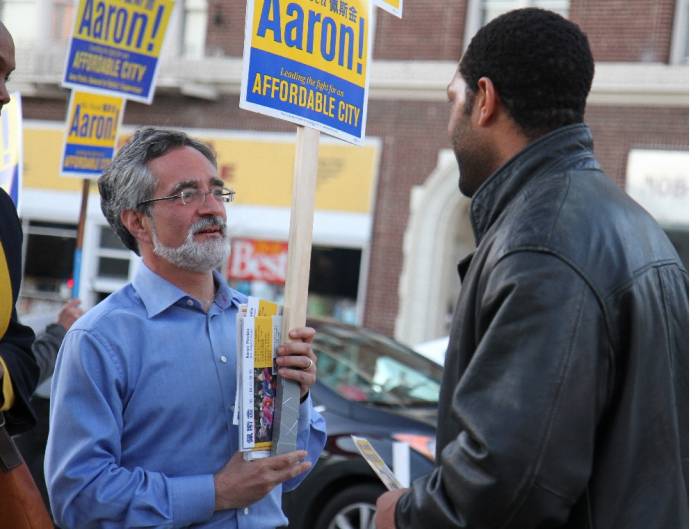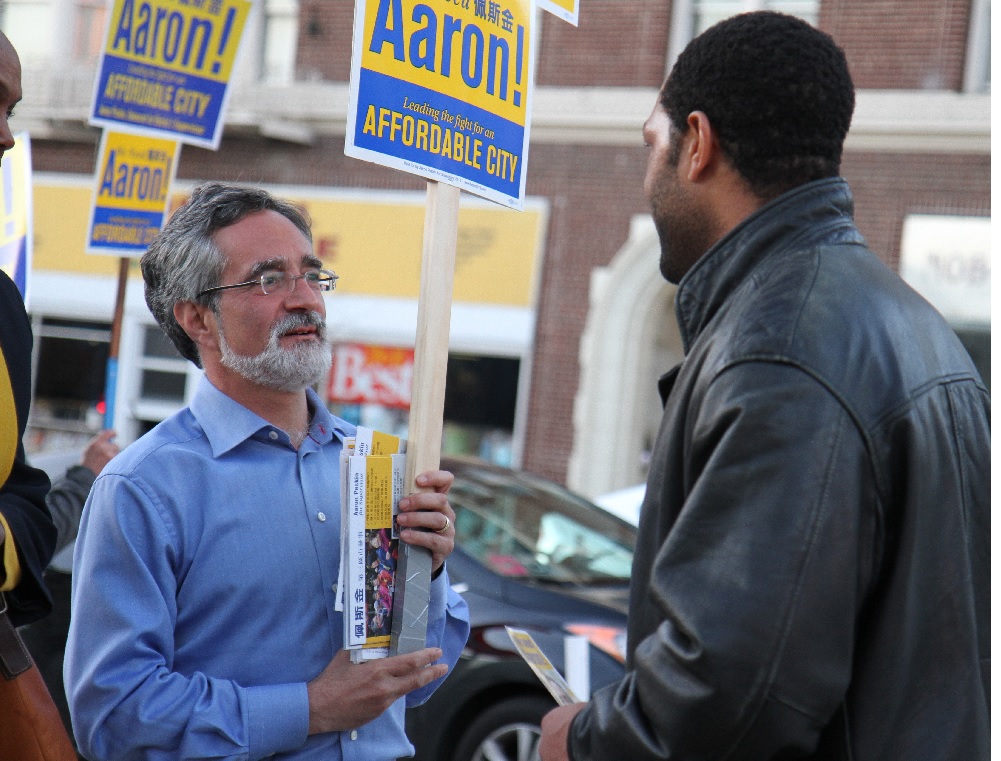
SCREEN GRABS It’s hard to imagine that the Aaron Peskin-Julie Christensen election was just a year ago. Back then, the mayor was heavily involved in local politics: He convened a meeting of donors and political heavies to warn them against supporting Peskin. He was out in District Three working hard for Christensen, his appointee. And the Peskin campaign found him formidable.

Today, the mayor is nowhere in the supes races. He’s nowhere in the fall election. His approval rating has fallen so low that his endorsement would do more harm than good to most candidates.
That’s one of the reason’s it’s so fascinating to watch Company Town, a new documentary by Deborah Kaufman and Alan Snitow (running through Nov. 3 at the Roxie). The filmmakers chose the November, 2015 election as a backdrop to a discussion of how the tech industry boom has deeply damaged San Francisco.
It’s a wonderful, lively – and for all the bleakness – encouraging film that shows not only the depths of despair of the tenants and community leaders facing eviction and the destruction of neighborhoods but the ability of activists to organize and fight back.
There are several threads to the story they present – the evictions and neighborhood change, narrated in part by Joe Fitzgerald Rodriguez, a reporter for the SF Examiner. There’s a sequence featuring Chinatown activist Jeffrey Kwong, who guides us through the eviction havoc in the city.
The political angle to all of this is the battle over regulating Airbnb and short-term rentals. Peskin was at the forefront of that effort; Christensen was such a loyal ally of Airbnb that at one point she pushed to make the existing weak law even worse.
Company Town Trailer from Snitow-Kaufman Productions on Vimeo.
And then there’s the Peskin campaign, from the rallies and the organizing to the humbling moments when Aaron stands on a corner in North Beach trying to hand out literature, and nobody stops to talk to him.
Help us save local journalism!
Every tax-deductible donation helps us grow to cover the issues that mean the most to our community. Become a 48 Hills Hero and support the only daily progressive news source in the Bay Area.
There are great interviews: Brian Chesky, the founder of Airbnb, talks with the haughty air of a tech mogul about how the “sharing economy” is going to change the world. Then Peskin steps in and says that his mother taught him that “sharing” is about giving the kid next you at lunch in school half your sandwich if he doesn’t have enough to eat. “And it’s not sharing if I charge him $5.”
The photography is excellent and the doc moves right along. It’s the perfect length – enough to tell the story but never let it drag.
The camera does the work in this movie – there’s no heavy-handed politics. It’s not needed, because you get the point pretty clearly:
The tech industry is trying to do a hostile takeover of San Francisco politics. It’s even worse this fall. But there are residents of the city who won’t give in, and in this particular tale, they win.
That’s the message of hope: Up against the power of one of the richest industries in the nation, grassroots politics can still work. We can still save San Francisco.
Company Town opens at the Roxie Oct 28 and runs to Nov. 3 – a perfect preview for this fall’s election.

Thanks for sharing your thoughts. I like hearing “new” ideas. That’ll be $5 plus tax. I accept cash.
That’s a trailer for another doc with the same name…here’s the correct one: https://www.youtube.com/watch?v=EvlSxofG-gc
Peskin and his ilk are the reason why housing is so messed up in San Francisco. The Telegraph Hill Dwellers are the NIMBY’s NIMBY.
Dude. Me and my bros want to buy up all the tickets to the opening night at the Roxie so we can make it a private event, yo.
>Then Peskin steps in and says that his mother taught him that “sharing” is about giving the kid next you at lunch in school half your sandwich if he doesn’t have enough to eat. “And it’s not sharing if I charge him $5.”
Peskin isn’t the brightest bulb in the store. Ne definitely needs to avoid analogies for that reason.
Yes, he described one mode of sharing. But there are many others.
If you ask a friend ‘Do you want to share a sandwich for lunch?’ It doesn’t mean that only one of you will pay for it and the other eats for free.
If you say that you share an apartment with someone it doesn’t mean that only one of you pays the bills.
If you share a cab it doesn’t mean that one party will ride for free.